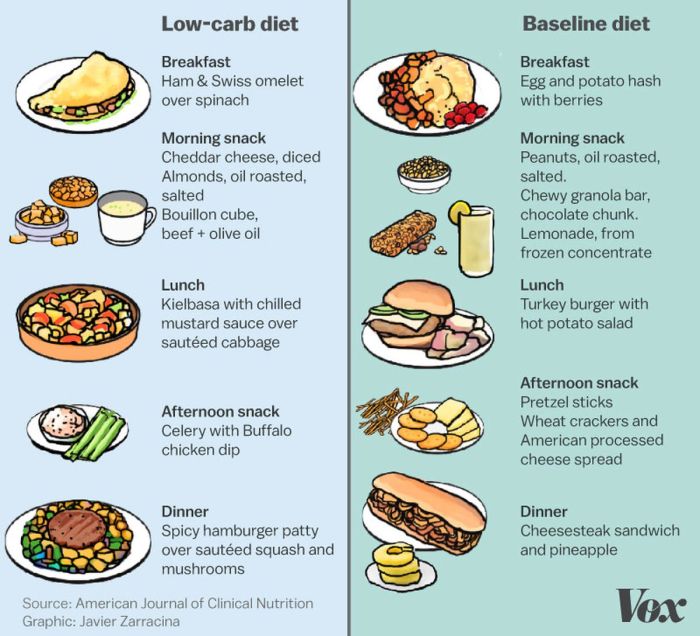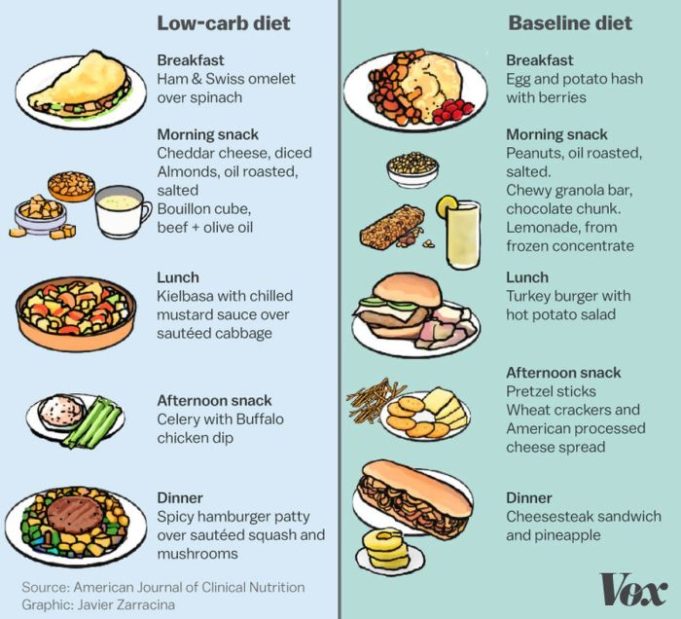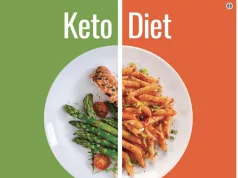What does keto diet do – What does the keto diet do? It’s a question that has gained significant traction in recent years, as people explore various dietary approaches for health and weight management. The ketogenic diet, often referred to simply as “keto,” is a high-fat, low-carbohydrate eating plan that forces the body to enter a metabolic state known as ketosis. In this state, the body begins to burn fat for energy instead of relying on glucose, which is typically derived from carbohydrates. This shift in energy production has sparked a surge of interest in the keto diet, with many individuals hoping to reap its potential benefits.
The keto diet’s fundamental principle is to significantly reduce carbohydrate intake, typically to 20-50 grams per day, while increasing fat consumption to around 70-80% of daily calories. Protein intake is typically moderate, usually around 15-20% of daily calories. This macronutrient breakdown encourages the body to enter ketosis, a state where it begins producing ketones, which are alternative fuel sources derived from fat. Ketones then become the primary energy source for the brain and other tissues, leading to a variety of metabolic changes and potential health effects.
What is the Keto Diet?
The ketogenic diet, often referred to as the keto diet, is a popular weight-loss strategy that involves significantly reducing carbohydrate intake and replacing it with fat. This shift in macronutrient consumption forces the body to enter a metabolic state called ketosis.
Basic Principles of the Ketogenic Diet
The keto diet is characterized by its strict emphasis on limiting carbohydrates while increasing fat intake. This dietary shift triggers a metabolic change in the body, leading to the production of ketones, which become an alternative energy source for the brain and body.
Macronutrient Breakdown
The keto diet follows a specific macronutrient breakdown, emphasizing a high-fat, moderate-protein, and very low-carbohydrate intake. Typically, the breakdown is as follows:
- Fat: 70-80% of daily calories
- Protein: 15-20% of daily calories
- Carbohydrates: 5-10% of daily calories
Foods Allowed and Restricted
The keto diet restricts certain foods while encouraging others.
Foods Allowed
- Healthy Fats: Olive oil, avocado oil, coconut oil, butter, ghee, fatty fish (salmon, mackerel, tuna), avocados, nuts (almonds, walnuts, macadamia nuts), seeds (chia seeds, flax seeds, pumpkin seeds), eggs
- Protein: Meat (beef, chicken, pork, lamb), poultry, fish, seafood, eggs, cheese, Greek yogurt
- Low-Carb Vegetables: Broccoli, cauliflower, spinach, kale, Brussels sprouts, asparagus, green beans, mushrooms, zucchini, bell peppers, onions, garlic
Foods Restricted
- Sugary Foods and Drinks: Sugary beverages, candy, desserts, pastries, processed foods, fruit juices
- Grains: Bread, pasta, rice, cereal, crackers, tortillas
- Starchy Vegetables: Potatoes, corn, peas, sweet potatoes
- Fruits: Most fruits, especially those high in sugar (bananas, grapes, mangoes, oranges)
- Legumes: Beans, lentils, peas
How Does the Keto Diet Work?
The ketogenic diet, or keto diet, is a low-carbohydrate, high-fat diet that forces the body to enter a metabolic state called ketosis. This diet drastically reduces carbohydrate intake, which forces the body to use fat as its primary energy source.
Ketosis and Metabolic Changes
When you drastically reduce your carbohydrate intake, your body enters a state of ketosis. This occurs because your body’s primary energy source, glucose, becomes scarce. To compensate, your liver starts breaking down fat into ketones, which are molecules that can be used as fuel by the brain and other organs.
Ketones as an Alternative Energy Source
Ketones are a type of fuel that can be used by the brain and other organs when glucose is not readily available. They are produced in the liver from the breakdown of fat. When your body is in ketosis, it primarily uses ketones for energy instead of glucose.
Potential Benefits of Ketosis
Ketosis has been linked to several potential health benefits, including:
- Weight loss: Ketosis can lead to weight loss because it reduces appetite and increases metabolism. Studies have shown that the keto diet can be more effective for weight loss than traditional diets.
- Improved blood sugar control: The keto diet can help regulate blood sugar levels, making it a potential benefit for individuals with type 2 diabetes.
- Reduced inflammation: Ketosis has been shown to reduce inflammation in the body, which may help protect against chronic diseases.
- Improved brain function: Some studies suggest that ketones can improve cognitive function, particularly in individuals with neurodegenerative diseases.
Potential Benefits of the Keto Diet
The keto diet has gained significant popularity due to its potential benefits, particularly in areas like weight loss, blood sugar management, and even the treatment of certain medical conditions. While further research is needed to fully understand its long-term effects, the keto diet offers a promising approach for individuals seeking to improve their health and well-being.
Impact on Weight Loss and Obesity
The keto diet’s effectiveness in promoting weight loss is attributed to its ability to induce a state of ketosis, where the body primarily burns fat for energy instead of carbohydrates. This metabolic shift leads to a reduction in appetite and calorie intake, contributing to weight loss. Studies have shown that individuals following a keto diet experience significant weight loss compared to those on traditional low-fat diets. For example, a study published in the journal “Obesity” found that participants on a keto diet lost an average of 10.4 pounds over 12 weeks, compared to 5.5 pounds lost by those on a low-fat diet. The keto diet’s impact on obesity management extends beyond weight loss. By reducing insulin resistance and promoting fat burning, the keto diet can help improve metabolic health and reduce the risk of developing obesity-related complications such as type 2 diabetes and heart disease.
Potential Risks and Side Effects: What Does Keto Diet Do

While the keto diet can offer potential health benefits, it’s crucial to understand that it’s not without its potential risks and side effects. These can range from temporary discomforts to more serious concerns, depending on individual factors and how the diet is implemented.
Keto Flu
The keto flu is a common side effect that occurs during the initial adaptation phase of the keto diet. It’s characterized by symptoms like fatigue, headaches, nausea, constipation, and brain fog. These symptoms are usually temporary and tend to subside within a few days to a week as your body adjusts to using fat as its primary energy source.
Fatigue and Low Energy Levels, What does keto diet do
The keto diet can lead to fatigue and low energy levels, particularly in the initial stages. This can be attributed to several factors, including:
- Reduced carbohydrate intake, which can initially impact energy production.
- Fluctuations in electrolyte levels, especially sodium and potassium, which are essential for energy metabolism.
- The body’s adaptation process as it switches to burning fat for fuel.
Constipation
Constipation is another common side effect of the keto diet. This is mainly due to the low fiber content of many keto-friendly foods. Fiber plays a crucial role in maintaining regular bowel movements, and its reduction can lead to constipation.
Nutrient Deficiencies
The keto diet can lead to nutrient deficiencies if not carefully planned. This is because many nutrient-rich foods, such as fruits, grains, and legumes, are restricted on this diet.
- Vitamin and Mineral Deficiencies: The keto diet can limit the intake of essential vitamins and minerals like vitamin C, vitamin E, potassium, magnesium, and fiber.
- Electrolyte Imbalances: The keto diet can lead to electrolyte imbalances, particularly sodium, potassium, and magnesium. These electrolytes are crucial for maintaining fluid balance, nerve function, and muscle contraction.
It is crucial to address potential nutrient deficiencies and electrolyte imbalances through proper supplementation and a balanced approach to the keto diet.
Managing Side Effects and Ensuring a Balanced Approach
To minimize the risks and side effects of the keto diet, it’s essential to:
- Consult a Healthcare Professional: Before starting the keto diet, it’s essential to consult with a healthcare professional, especially if you have any underlying medical conditions or are taking medications.
- Gradual Transition: Instead of making drastic changes, gradually transition to the keto diet over a few days to minimize the impact of keto flu.
- Adequate Hydration: Drink plenty of water throughout the day to prevent dehydration and electrolyte imbalances.
- Electrolyte Supplementation: Consider supplementing with electrolytes, especially sodium, potassium, and magnesium, to address potential imbalances.
- Balanced Diet: Ensure your keto diet includes a variety of nutrient-rich foods, including healthy fats, non-starchy vegetables, and adequate protein.
- Fiber Intake: Include sources of fiber in your diet, such as chia seeds, flax seeds, and leafy green vegetables, to prevent constipation.
- Monitor Your Progress: Pay attention to your body’s response to the keto diet and make adjustments as needed.
Long-Term Sustainability and Considerations
While the keto diet can be effective for short-term weight loss, its long-term sustainability and potential challenges are crucial considerations. Maintaining a strict ketogenic diet over an extended period can be demanding and may pose certain risks.
Balancing Nutrient Intake
A balanced and varied diet is essential for ensuring adequate nutrient intake, especially over the long term. The keto diet, with its emphasis on fat and limited carbohydrate intake, may lead to deficiencies in essential nutrients like fiber, vitamins, and minerals.
- Fiber: Fiber is crucial for digestive health, blood sugar regulation, and satiety. The low-carb nature of the keto diet can limit fiber intake, potentially leading to constipation and other digestive issues.
- Vitamins and Minerals: The keto diet may restrict the intake of fruits, vegetables, and whole grains, which are rich sources of essential vitamins and minerals. This could lead to deficiencies in vitamins like thiamin, folate, and vitamin C, and minerals like potassium and magnesium.
Comparing the Keto Diet with Other Weight Loss Strategies
The keto diet is one of many weight loss strategies, each with its own benefits and drawbacks. Comparing it to other approaches can provide a more comprehensive understanding of its long-term sustainability.
| Weight Loss Strategy | Pros | Cons |
|---|---|---|
| Keto Diet | Rapid weight loss, potential for improved blood sugar control | Difficult to maintain long-term, potential nutrient deficiencies, risk of side effects |
| Calorie Restriction | Widely accepted, sustainable over time, fewer restrictions on food choices | Slower weight loss, can be challenging to maintain |
| Intermittent Fasting | Flexible, can be easier to follow than other diets | May not be suitable for everyone, potential for side effects |
Who Should and Should Not Consider the Keto Diet
The ketogenic diet, while potentially beneficial for some, isn’t suitable for everyone. It’s crucial to understand who may benefit from it and who should avoid it to make informed decisions about their health.
Individuals Who May Benefit from the Keto Diet
The keto diet has shown promise for individuals with certain health conditions, particularly those related to weight management and metabolic disorders.
- Obesity: The keto diet’s focus on fat intake and reduced carbohydrate consumption can lead to weight loss. This is because it promotes a metabolic shift, leading to increased fat burning. A study published in the journal “Obesity” found that individuals following a ketogenic diet for 24 weeks experienced significant weight loss compared to those on a standard low-fat diet.
- Type 2 Diabetes: The keto diet can help regulate blood sugar levels in individuals with type 2 diabetes. By reducing carbohydrate intake, it minimizes insulin spikes, improving blood glucose control. A study published in the journal “Diabetes Care” found that individuals with type 2 diabetes who followed a ketogenic diet for 12 weeks experienced significant improvements in HbA1c levels and insulin sensitivity.
- Polycystic Ovary Syndrome (PCOS): The keto diet may help manage symptoms of PCOS, such as weight gain, insulin resistance, and hormonal imbalances. A study published in the journal “Nutrients” found that a ketogenic diet improved insulin sensitivity and reduced androgen levels in women with PCOS.
Individuals Who Should Avoid the Keto Diet
The keto diet is not suitable for everyone, and certain individuals should avoid it due to potential risks or complications.
- Pregnant Women: The keto diet can be dangerous for pregnant women as it restricts essential nutrients, such as carbohydrates, which are vital for fetal development. Additionally, the potential for ketosis can have negative effects on the developing fetus.
- Breastfeeding Mothers: The keto diet can affect breast milk production and may not provide sufficient nutrients for the infant. The restricted calorie intake and potential for ketosis can also affect the mother’s energy levels and overall well-being.
- Individuals with Certain Medical Conditions: The keto diet should be avoided by individuals with conditions like:
- Pancreatitis: The keto diet’s high-fat content can put stress on the pancreas, potentially exacerbating pancreatitis symptoms.
- Kidney Disease: The keto diet can lead to increased production of ketones, which can put additional strain on the kidneys.
- Liver Disease: The keto diet’s high-fat content can strain the liver, potentially worsening liver disease.
- Gallbladder Disease: The keto diet’s high-fat content can trigger gallbladder attacks in individuals with gallbladder disease.
- Eating Disorders: The keto diet’s restrictive nature can exacerbate eating disorders.
Importance of Consulting a Healthcare Professional
It is crucial to consult with a healthcare professional before starting the keto diet. A healthcare professional can assess your individual health needs, identify any potential risks or contraindications, and provide personalized guidance. They can also monitor your progress and make adjustments to your diet plan as needed.
Outcome Summary
The keto diet, with its unique approach to macronutrient intake, has garnered considerable attention for its potential benefits in weight loss, blood sugar control, and managing certain health conditions. However, it’s essential to acknowledge the potential side effects and risks associated with this diet. While the keto diet may offer advantages for some individuals, it’s crucial to consult a healthcare professional before embarking on this dietary journey. They can help determine if the keto diet is appropriate for your individual needs and health status, ensuring a safe and effective approach to achieving your health goals.
FAQ Resource
How long does it take to enter ketosis?
It typically takes a few days to a week for most people to enter ketosis, but individual experiences can vary depending on factors like starting carbohydrate intake and metabolic rate.
Is the keto diet sustainable long-term?
While some people find the keto diet sustainable long-term, others may find it challenging to maintain. It’s crucial to listen to your body and ensure adequate nutrient intake.
Can I exercise while on the keto diet?
Yes, exercise is generally encouraged while on the keto diet. However, it’s important to adjust your exercise intensity and duration as needed, as your energy levels may change during the initial stages of ketosis.
The keto diet, known for its high-fat, low-carb approach, can lead to significant weight loss and improved metabolic health. However, it’s crucial to be mindful of the types of foods you’re consuming, as many keto-friendly options have a limited shelf life.
To ensure you’re getting the most out of your keto journey, it’s important to be aware of how long your foods will last – you can find a helpful guide on food storage times here. This knowledge can help you avoid food waste and ensure you’re always enjoying fresh, nutritious ingredients on your keto diet.
The keto diet focuses on drastically reducing carbohydrate intake and replacing it with fat, leading to a metabolic state called ketosis. This shift in energy source can be beneficial for weight loss and managing certain health conditions. But when it comes to your feline friend, a different kind of diet is crucial.
You might wonder, is Science Diet a good cat food ? While a keto diet is great for humans, a balanced diet tailored to your cat’s needs is essential for their health and well-being.
The keto diet is a popular weight loss strategy that forces your body to burn fat for energy by drastically reducing carbohydrate intake. This can be a tough adjustment, and some people find it helpful to do a “reset” to get back on track.
A reset diet, like the one described in this article, how does reset diet work , can help to jumpstart your metabolism and get you back into ketosis. Ultimately, the success of any diet depends on your commitment to following it consistently and making sustainable lifestyle changes.
























